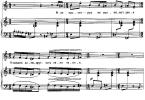The suffix method is the most productive in word formation. Let's consider this thesis using examples of adjective suffixes in English.
Theory
What is a suffix? This term refers to the significant part of the word that comes immediately after the root. Depending on the function, the following types of suffixes are distinguished:
- Form-building
(used to form new grammatical forms):
to play - played (play - played), big - bigger (big - more);
- Derivational
(used to form single-root lexemes):
child - childhood (child - childhood), to write - writer (write - writer), fame - famous (fame - famous).
There are five formative suffixes in the English language. And the most common are word-forming ones. They are involved in the formation of adjectives from nouns, verbs and simple adjectives.
Adjective suffixes
Adjective suffixes - these are significant parts of a word that are attached to a noun or verb, and thereby form new words. The most productive and popular are presented in the following table:
|
Suffix |
Meaning |
Examples |
|
Faith - faithful (faith - faithful) |
||
|
Humor - humorous (humor - humorous |
||
|
Lack of a certain quality |
Aim - aimless (aim - aimless) |
|
|
A property characteristic of objects, persons and phenomena |
Beast - beastly (animal - rough, animal); King - kingly (king - majestic, royal) |
|
|
Periodicity, repeatability in a certain period of time |
Hour - hourly (hour - hourly); Day - daily (day - daily) |
|
|
The material from which the item is made |
lead - leaden (lead - lead); silk - silken (silk - silk) |
|
|
Signs, properties characteristic of certain phenomena |
Silk - silky (silk - silky); snow - snowy (snow - snowy) |
|
|
history - historic (history - historical); hero - heroic (hero - heroic) |
||
|
function - functional (function - functional); nature - natural (nature - natural, natural) |
||
|
Small, insignificant degree of property of an object |
fool - foolish (fool - stupid); cat - cattish (cat - feline); red - reddish (red - reddish) |
|
|
Nationality |
Scotland - Scottish (Scotland - Scottish) |
|
|
Possessing some kind of opportunity or ability |
To avoid - avoidable (avoid - preventable, something that can be avoided); to recognize - recognizable (to recognize - recognizable); to extend - extensible (to extend - extensible, one that can extend) |
|
|
Quality obtained as a result of an action indicated by a verb |
To observe - observant (observe - observant); to differ - different (to differentiate - different) |
|
|
The presence of a certain property, sign of an object |
revolution - revolutionary (revolution - revolutionary); diet - dietary (diet - dietary); to obligate - obligatory (oblige - obligatory) |
|
|
Nationality or language |
China - Chinese |
When adding the suffixes -able, -ible to the stem of the verb, the final vowel -e is omitted, and the final vowel -y changes to -i: to reduce - reducible, to rely - reliable.
In this article from the “” series we will look at 10 main adjective suffixes in English: -ful, -less, -ous, -al, -y, -ic, -ish, -able, -ive, -ent (10), We will also devote significant time to practicing these suffixes. Word formation exercises will not only help you prepare for English language exams in the form of the OGE and the Unified State Exam, but will expand your vocabulary and contribute to the development of linguistic conjecture.
Dear site visitors! Copying this article for the purpose of posting it on other resources is prohibited. © site, 2015
Word formation of adjectives
1. Suffixes of adjectives formed from nouns
noun + Ʌ = adj
- -ful (expresses the presence of quality; beautiful, colorful)
- -less (expresses lack of quality: colourless, useless)
- -ous (words of French origin, analogue of ful: courageous, famous)
- -al (central, formal)
- -y (cloudy, dirty)
- -ic (poetic, domestic)
- -ish (expresses nationality: Scottish, English, as well as a weak degree of quality: brownish - brownish, reddish - reddish)
The exception is the suffix -ly, since this suffix serves to form adverbs. However, there are a number of adjectives and quite common ones that are formed using this suffix, for example: friendly(friendly), lovely(charming), lively(active, active)
2. Suffixes of adjectives formed from verbs
verb + Ʌ = adj
- -able /-ible (expresses the ability to undergo an action indicated by the verb: to change – changeable (change – changeable); to eat – eatable (eat – edible)
- -ive (active, talkative)
- -ent /-ant (different, important)
Note that the vowel in the adjective suffix is e nt/- a nt is the same as in the noun suffix - e nce/- a nce and vice versa, that is:
differ ent- differ ence
import ant-import ance
Adjective suffixes in English. Exercises
Exercise 1. Translate into Russian.
The suffix -ful means “be full of” e.g. beautiful means “be full of” beauty.
- She was very grateful for our help.
- She likes colorful clothes.
- She is a very forgetful girl.
- We are not sure that our team will win, but we are hopeful.
- They lived a peaceful, happy life.
- He was always as helpful as possible.
Exercise 2.1. Translate into Russian.
The suffix -less means "without" e.g. hopeless means “without” hope.
a moonless night, a cloudless sky, a noiseless machine, numberless heroes, a motherless girl, a heartless woman, a homeless cat, a leafless tree, a nameless author, a sunless room, a endless war, a lifeless body, a colorless liquid , a friendly child, a sleepless night, careless people, a doubtless victory
Exercise 2.2. Translate into English.
A cloudless sky, a helpless child, a silent car, countless heroes, a lifeless body, a carefree child, a heartless woman, a stray cat, a tree without leaves, a nameless author, a room without sun, an endless war, a colorless liquid. It was a moonless night. He looked tired after a sleepless night.
Exercise 3.
The suffix - ous means “full of” which comes from French e.g. danger + ous = dangerous
A. Form adjectives from nouns and translate them.
SAMPLE nerve + ous = nervous (nerve - nervous)
fame - ..., humor - ..., courage - ..., glory (y->i) - ..., poison - ..., space (i) - ...
IN. Use the words in the sentences.
- We don’t know if these chemicals are ____________ to people.
- She became ____________as a writer.
- I like to read___________stories.
- There are a lot of ________ snakes in the jungle.
- It was a _________victory.
- He was a ____________soldier.
- They liked the _______________rooms in their new house.
Exercise 4. The suffix -y.
A. Translate into Russian.
windy day, sunny weather, cloudy sky, sleepy child, dreamy girl, icy wind, healthy food
B. Form adjectives from the nouns and translate them.
SAMPLE swamp - swampy (swamp - swampy)
sand - ... , rock - ... , juice - ... , grass - ... , star(r) - ... , bone - ... , skin(n) - ..., water- ... , fog (g) - ..., swamp - ...
C. Put the adjectives from B into this sentences to make them complete.
- This … land is very good for farming. Cows and sheep can feed here all the year round.
- Peter, eat some more roast beef. You should eat more: you have grown so… (2 options)!
- On such … mornings it’s very difficult to drive, as you can’t see the road clearly.
- These are... apples. I like them most of all.
- My little brother never eats fish if it is….
- Holidaymakers love the … beaches in the south of Australia.
- Why does this coffee taste so... ?
- The picture shows the … mountains of Scotland.
- The sky is unusually… tonight.
- … places have a lot of water in all seasons.
Exercise 5. Translate into Russian the adjectives, ending with the suffix — ic.
gigantic hound, scientific expedition, domestic animal, academic year, Olympic games, thematic collection, basic knowledge
Exercise 6. Make up adjectives with the help of suffix -al and translate them.
SAMPLE music – musical (music – musical)
industry – …, culture – …, region – …, tradition – …, nature – …, nation – …, agriculture – …, comic – …
Exercise 7. Nationality suffixes
SAMPLE Britain – British
Scotland - ..., Spain - ..., Sweden - ..., Finland - ..., Denmark - ..., Poland - ..., Turkey - ...
SAMPLE Russia – Russian
America — …, Australia — .., Canada — …, Hungary — …, Belgium — …, Egypt — …, Italy — …, Europe — …
SAMPLE Japan – Japanese
China - ... , Portugal - ...
Mind: Germany - German, France - French, Holland - Dutch, Greece - Greek
Exercise 8. The suffix – able.
Suffix able has the value "can": movable means can move - can be moved (movable)
A. Form the words with the suffix – able.
move — .., count — …, eat — …, drink — …, comfort — …, imagine — …, break — …, read — …, respect — …., forget — …, believe — …
B. Use the words in the sentences:
- Though the cup is made of thin glass it is not……….(break).
- She thought of all names………to guess the name of their new classmate. (imagine).
- Everybody respects him. He is very …….. (respect).
- I can't read the book. It is not……(read).
- The nouns are divided into …………. and un…………… (count).
Exercise 9. Form the words with the suffix –ive.
create - ... , impress - ... , progress - ... , act - ... , mass - ... , impulse - ...
Exercise 10. Read the adjectives and spell the suffixes used in forming them.
SAMPLE changeable— The adjective changeabl e is formed with the help of the suffix -able.
successful, cloudless, collective, central, comic, satirical, dangerous, faultless, misty, courageous, aggressive, national, breakable
Exercise 11. Translate these combinations; say what words the adjectives are formed from.
a washable shirt, a skilful worker, democratic forces, the postal service, groundless suspicions, a humorous story, a gloomy scene, salty ham, professional interest, peaceful labour, a noiseless machine, a courageous soldier, a lucky ticket, a continental climate , a dusty road.
Exercise 12. Copy and translate all these adjectives. Learn them by heart

B. Listen to the adjectives and translate them by ear.
Word formation in English (repetition)
Noun suffixes. Repetition
Exercise 13. Form nouns from these adjectives using suffixes from the table.

able, near, distant, long, wide, strong, wise, kind, electric, short, white, probable, persistent, dependent, insistent, indifferent, unstable, patient, responsible, important, stupid, curious
That's all for now! I would be glad if my article is useful to you and you share the link on social networks!
Sources: exercises taken from various manuals, partially redone and modified. In particular, the textbooks “English language grades 5-11” by Afanasyeva O.V., Mikheeva I.V. were used.
What do words have in common? lovely, helpful, caring, painful? They all have the same suffix, when writing which a huge number of mistakes are made. This is understandable, because everyone is familiar with the word full, and accordingly, the suffix is written in the same way, with two l.
Indeed, the suffix -ful owes its origin to the adjective full, which translates as "full, filled, rich in something":
Full of water - full of water
full of love - full of love
full of pleasant memories - filled with pleasant impressions
An adjective is always written with two l's. By the way, it has other meanings:
I am not hungry I am full. - I'm not hungry, I'm full.
unabridged, in full form:
What is your full name? - What is your full name?
I was waiting for a full hour. - I've been waiting for him for an hour.
The suffix - ful (in which there is one l) tends to form adjectives when combined with verbs and nouns. -Ful emphasizes the presence of a certain characteristic.
Let's remember some adjectives with the suffix -ful, as well as the verbs and nouns from which they come:
|
Verb (verb) |
Noun (noun) |
Adjective (adjective) |
|---|---|---|
|
beauty (beauty) |
beautiful (beautiful) |
|
|
care (take care) |
care |
careful (caring) |
|
cheer (to cheer) |
cheer (encouragement) |
cheerful (cheerful, cheerful) |
|
color (paint) |
color (color) |
colourful |
|
delight (pleasure) |
delightful (pleasant) |
|
|
doubt (doubt) |
doubt |
doubtful (doubtful) |
|
faith (to believe) |
faith |
faithful (faithful) |
|
forget (to forget) |
forgetful (forgetful) |
|
|
grace (gracefulness) |
graceful (graceful) |
|
|
harm (harm) |
harmful (harmful) |
|
|
help (help) |
help (help) |
helpful (ready to help) |
|
hope (to hope) |
hope |
hopeful (full of hope) |
|
joy (fun) |
joyful (joyful) |
|
|
law (law) |
lawful (legal) |
|
|
mean (mean) |
meaning |
meaningful |
|
pain |
painful |
|
|
plenty (many) |
plentiful (numerous) |
|
|
power (strength) |
powerful (strong) |
|
|
respect (respect) |
respect |
respectful (respected) |
|
skill (skill, skill) |
skillful (skillful) |
|
|
stress (to depress) |
stress |
stressful |
|
use (use) |
use |
useful (useful) |
|
thought (thought) |
thoughtful (thoughtful) |
|
|
taste (try) |
taste (taste) |
tasteful (delicious) |
Some words that look like adjectives with the suffix -ful are actually nouns. The suffix adds the meaning "full, filled". These are nouns: handful (handful), mouthful (full mouth), spoonful (full spoon), houseful (full house) and others.
Now many of you probably remember that you have come across the words beautiful or helpful with two l. Yes, this is possible! But only with education!
You and I know that most adverbs in English are formed using the suffix -ly. If this suffix is added to an adjective that already ends in l, then, of course, the consonant will be doubled:
Beautiful - beautifully
careful - carefully
hopeful - hopefully
Remember that only in adverbs with the suffix -ly is it possible to encounter a double -l.
You see how simple it is! Now you know the simple rules and will always confidently choose the correct spelling of words with the suffix --ful.
Want more useful tips for learning English? Subscribe and join us on
Confusion may arise (both are often called word endings, “word endings”), and the English terminology in this matter is slightly different from Russian. So let's start with the basic concepts.
The ending is an inflectional morpheme. It changes the form of the word, but not its meaning, and at the same time carries a grammatical load:
- pencil - pencil s(the ending indicates the plural)
- work - work ed(the ending indicates the past tense)
The suffix, in turn, is a word-forming morpheme. Suffixes in English create new words, either changing the meaning of the original, or transforming one part of speech into another:
- red-redd ish(red - reddish)
- teach - teach er(teach - teacher)
There are very few endings in English - these are -s (-es), -ed and -ing. There are a huge number of suffixes in English. In this article we will consider only the most common ones.
Noun suffixes
Suffixes of professions and activities (-er, -ent, -ess)
The suffix -er is perhaps the most common and productive for denoting “doers.” With it you can form a noun from almost any verb.
- write > writer - write > writer
- bake > baker - oven > baker
- paint > painter - draw > artist
Most modern words denoting the performer of an action are formed with its help. This also applies to inanimate objects.
- printer - printer
- scanner - scanner
Many have the suffix -or:
- doctor - doctor
- tailor - tailor
- actor - actor
The suffix in English -ist often denotes activities related to science and medicine:
- scientist - scientist
- dentist - dentist
- biologist - biologist
It also denotes an adherent of any views and beliefs:
- pacifist - pacifist
- communist - communist
- realist - realist
Other suffixes in English for words of Latin and Greek origin:
Suffix -ian:
- musician - musician
- librarian - librarian
- mathematician - mathematician
Suffix -ent:
- student - student
- resident - resident, resident
- agent - agent
Suffix -ant:
- informant - informant
- assistant - assistant
- confidant - trusted person
The suffix -ess is one of the few "feminine" suffixes in English:
- waitress - waitress
- actress - actress
- princess - princess

Suffixes of process, action, phenomenon (-ment, -ion, -ism)
The suffix in English -ment is needed when forming verbal nouns and means an action or its result:
- movement - movement
- entertainment - entertainment
- concealment - concealment
The suffix -ion also means an action, a process, or the result of that process:
- revolution - revolution
- isolation - isolation
- restriction - restriction
The suffix -ism denotes a system of views and beliefs:
- racism - racism
- communism - communism
- pacifism - pacifism
Suffixes of state, quality, property (-ance / -ence, -dom, -hood, -ity, -ness, -ship, -th)
The suffix -ance/-ence on a noun generally corresponds to the suffix -ant/-ent on an adjective:
- different - difference (different - difference)
- important - importance (important - importance)
- independent - independence (independent - independence)
The suffixes in English -hood and -ship mean a person’s condition associated with his age, social relationships, and sometimes activities; or a group of people united by this condition.
- childhood - childhood
- motherhood - motherhood
- priesthood - clergy
- friendship - friendship
- internship - internship, internship

The suffix -dom means states and properties of a broader meaning:
- freedom - freedom
- wisdom - wisdom
- martyrdom - martyrdom
The suffix in English -ness means the possession of some quality and is used to form nouns from adjectives:
- kindness - kindness
- usefulness - usefulness
- vastness - vastness
The suffix -th more often means physical properties:
- strength - strength
- length - length
- warmth - warmth
The suffix -ity means property, quality, and is common for words of Latin origin:
- brevity - brevity
- velocity - speed
- purity - purity
Adjective suffixes
The suffix in English -ful means having a quality (and is related to the adjective full - “full”):
- beautiful - beautiful
- useful - useful
The suffix -less is the opposite in meaning to the previous one and means lack of quality:
- careless - carefree
- harmless - harmless
The suffix -able, -ible characterizes the property or availability for any action:
- edible - edible
- portable - portable, portable
- admirable - admirable
The suffixes -ic and -al mean “relating to, associated with something”:
- heroic - heroic
- mythic - mythical
- cultural - cultural
- musical - musical

The suffix -ous also carries the characteristic:
- dangerous - dangerous
- nutritious - nutritious
The suffix in English -ish has several meanings:
expresses similarity (in terms of appearance, behavior)
- girlish - girlish
- childich - childish, childish
- foolish - stupid
weakens the meaning of the adjective
- reddish - reddish
- narrowish - narrowish
means nationality, language or belonging to a country
- English - English
- Swedish - Swedish
The suffix -ive means having a property, ability:
- attractive - attractive
- sedative - sedative
The English suffix -y is used to form many simple adjectives:
- rainy - rainy
- dirty - dirty
- sunny - sunny
Verb suffixes
Verb suffixes are not so diverse and almost all have the meaning “to do something” or “to become something.”
It is not always possible to use a dictionary or simply quickly remember the appropriate word. In such situations (and not only in them), knowledge of suffixes and prefixes will help out. So, for example, it corresponds to the Russian prefixes without-, bes-, ne-. This is what you need when you need to form a negative word from one that you already know well.
The suffix less in English and its meaning
It is considered to be part of adjectives. If you look in the dictionary, less is “something insignificant or insignificant”, “a smaller amount”. Usually, less added to a noun (or verb) and thanks to this metamorphosis, an adjective with a negative meaning is formed. That is, the scheme is like this:

For example, you need to use the word in speech "carefree". You don't know the English equivalent, but remember the word “care” - “care”. It is a noun, that is, you can safely add it to care suffix with a negative value and you get what you need - "careless"(in translation "carefree"). Learn to use a suffix less in English, and you don’t have to look in the dictionary again.
English words with the suffix less. Examples
Please note the following English words with the suffix less. Many of them are used quite often in speech. For convenience, the first column contains nouns from which a new word is formed using less.
|
noun |
adjective |
translations |
|
hope |
hope less |
hope - hopeless |
|
use less |
useful - useless |
|
|
help |
help less |
help - helpless |
|
heart |
heart less |
heart - heartless |
|
fear |
fear less |
fear - fearless |
|
home |
home less |
house - homeless |
|
brain |
brain less |
brain - brainless |
|
harm |
harm less |
harm - harmless |
|
job less |
job - unemployed |
|
|
blame |
blame less |
guilt - innocent |
|
shame |
shame less |
shame - shameless |
|
doubt |
doubt less |
doubt - indisputable |
|
love |
love less |
love - unloved |
|
aim less |




